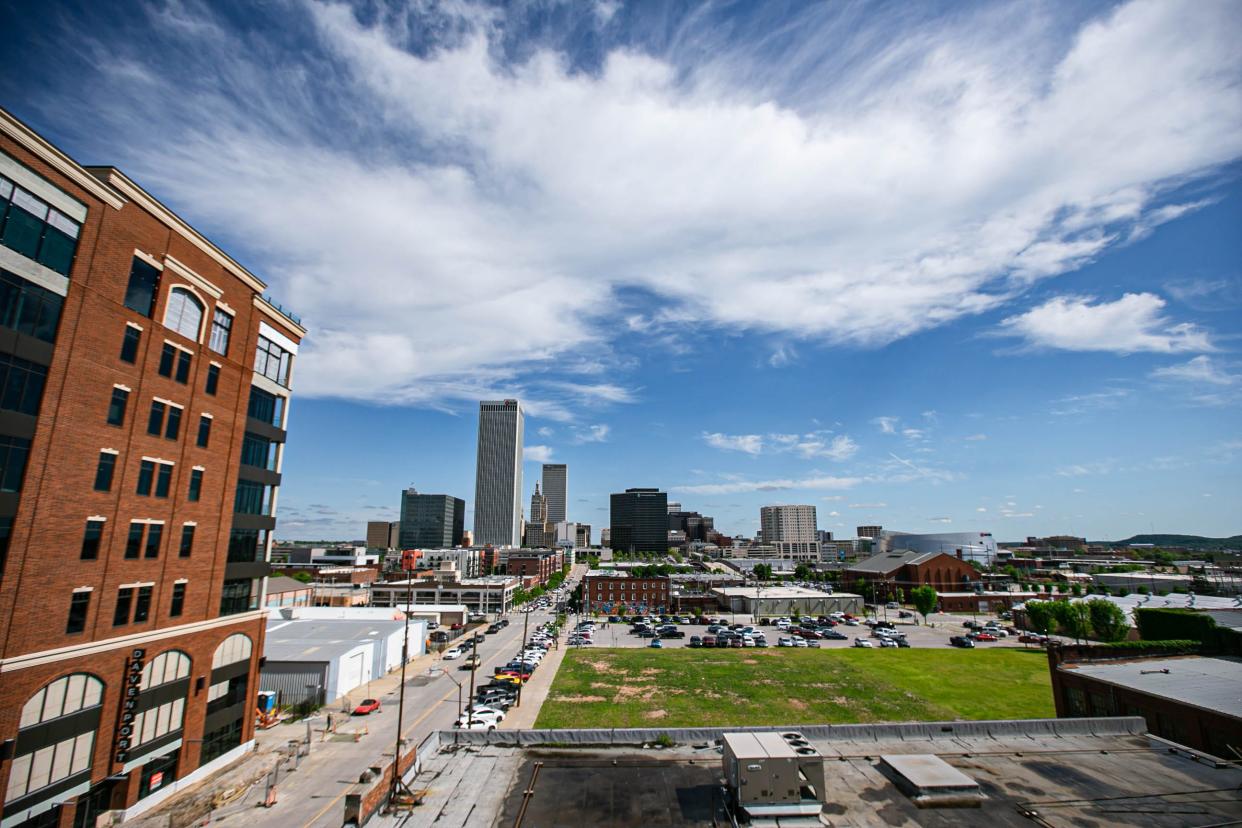Muscogee Nation sues to stop Tulsa from prosecuting tribal citizens for traffic offenses

The Muscogee Nation is suing Oklahoma’s second-largest city over its refusal to stop prosecuting tribal citizens for traffic offenses.
Tulsa officials have insisted the city has the power to continue processing those tickets and fines, even after a federal appeals court ruled against the city's stance, the Muscogee Nation said in its lawsuit filed Wednesday.
The 10th Circuit Court of Appeals ruled in June that Tulsa lacks criminal jurisdiction over Native Americans because the city lies within Indian Country — mainly the Muscogee reservation — where only federal and tribal courts can try cases involving Native American defendants.
In its lawsuit, the Muscogee Nation contends Tulsa is still refusing to pass along traffic cases involving Native American drivers to the Muscogee court system. The refusal violates federal law and infringes on the rights of Muscogee citizens, as well as citizens of other tribes, the lawsuit argues.
The tribe is asking a federal judge to permanently block Tulsa from prosecuting Native Americans.
Lawsuit is the latest in a yearslong fight over traffic tickets in Tulsa
David Hill, the principal chief of the eastern Oklahoma tribe, said in a statement that he remained open to government-to-government cooperation with city officials.
“But we will not stand by and watch the city disregard our sovereignty and our own laws by requiring Muscogee and other tribal citizens to respond to citations in Tulsa city court because of the city’s make-believe legal theories,” Hill said.
The lawsuit names Tulsa Mayor G.T. Bynum, Police Chief Wendell Franklin and City Attorney Jack Blair as defendants. City officials could not yet be reached regarding the lawsuit, which was filed in the U.S. District Court of Northern Oklahoma.
More: The story behind Gov. Stitt's new 'One Oklahoma' video on tribal reservations
The lawsuit marks the latest chapter in a yearslong fight over traffic tickets. After the 10th Circuit Court of Appeals ruled against Tulsa earlier this year, city officials asked the Supreme Court to stay the decision, but Justice Neil Gorsuch denied the city’s request in August.
The legal dispute came to widespread attention in recent months after Gov. Kevin Stitt made the case the centerpiece of a new online campaign where he criticizes the McGirt v. Oklahoma ruling. The decision affirmed the Muscogee reservation existed and has raised further questions about state authority on those lands.
In its new legal filing, the Muscogee Nation contends the city is now relying on a different legal justification than the one struck down by the federal appeals court.
The city originally asserted the 1898 Curtis Act gave it authority to keep prosecuting Native Americans for traffic offenses. In more recent filings, Tulsa now says it has jurisdiction over those cases under the 2022 Supreme Court ruling in Oklahoma v. Castro-Heurta. That decision affirmed state courts could try cases involving Native American victims on tribal reservations.
The court did not address cases that involve Native American defendants, such as traffic offenses.
Tulsa only focusing on traffic tickets, lawsuit says
The Muscogee Nation also contends Tulsa is selectively asserting what cases it has the power to prosecute. It has referred 2,618 reports of misdemeanor and felony crimes for prosecution in the Muscogee court system.
“Tulsa has generally declined to refer just one category of offenses: traffic offenses,” the Muscogee Nation said in its legal filing.
Geri Wisner, the attorney general for the Muscogee Nation, said tribal officials decided to file the lawsuit because Tulsa was violating the law.
“There is no legal basis for current city policies dealing with citizens of tribal nations, and we are asking the court to require the city to follow the law,” Wisner said.
Molly Young covers Indigenous affairs. Reach her at mollyyoung@gannett.com or 405-347-3534.
This article originally appeared on Oklahoman: Tulsa is infringing on tribal citizens' rights, new lawsuit contends

